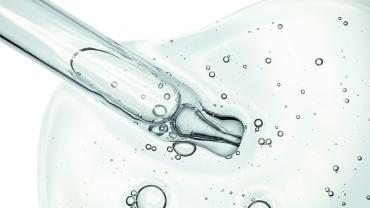
Hyaluronic acid is an important component of cell membranes and is produced by almost all cell types in the human body. It is classified as a glycosaminoglycan heteropolysaccharide, and it is part of the extracellular matrix. Hyaluronic acid as a nutraceutical has been a topic in recent research because of its potential to support many aspects of human health, which includes healthy aging and inflammation.
The health-supportive actions of hyaluronic acid are vast, and they are still being elucidated by researchers. These actions may support cellular development, differentiation, and proliferation. They have also been shown to support matrix structure, hydration, and lubrication. Hyaluronic acid can form a viscous gel that can act as a buffer for surrounding structures. It can also act as an external cytoskeleton and control the cellular shape.
A review article published by Marinho and colleagues explored the relationship between hyaluronic acid and a healthy inflammatory response. In the presence of tissue injury, hyaluronic acid may participate in the tissue repair process, help modulate the inflammatory response, and act as a regulator of fibroblasts and epithelial cells. It can also help organize collagen fibrils.
Hyaluronic acid acts as a signaling molecule and interacts with certain inflammatory cytokines, such as interleukin (IL)-8. It also interacts with the CD44 receptor, which is expressed in activated macrophages.
Clinical studies have explored the relationship between hyaluronic acid and inflammatory diseases. Research has indicated that conjugated formulas with hyaluronic acid may help support knee pain improvements and an inflammatory response in the presence of osteoarthritis. It is also being studied for its potential role in cartilage repair.
An 8-week, randomized double-blind, placebo-controlled clinical trial investigated the efficacy of low molecular weight hyaluronic acid combined with glucosamine and chondroitin on individuals experiencing knee pain in the presence of osteoarthritis. Significant improvements in pain scores, stiffness, and physical function were observed in the treatment group as compared to a placebo.
Oxidative stress is often associated with the aging process. Hyaluronic acid exhibits free-radical scavenging activity. It also helps promote keratinocyte proliferation. It may also help promote the health of the skin when exposed to the sun. A randomized clinical trial assessed the efficacy of a supplement containing hyaluronic acid on individuals experiencing moderate photoaging. Improvements in skin hydration and other biomarkers were observed at the study terminus and 2 weeks after the end of treatment.
Hyaluronic acid is a molecule with the potential to support cellular health, skin integrity, and healthy aging. Research suggests it also may support bone health and the inflammatory response.
By Colleen Ambrose, ND, MAT